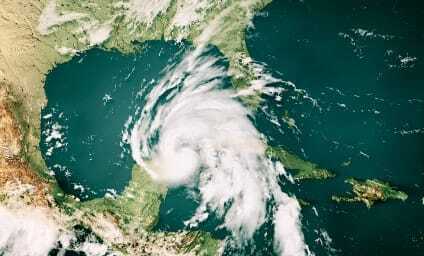
Hurricanes Helene and Milton impacted the Southeast region of the United States roughly two weeks apart. Helene reached as far as the Appalachian Mountains, where widespread severe flooding occurred. Milton made landfall in Sarasota, Florida causing power outages for over 3 million customers.
With more than 6,500 ISN customers in the areas affected by Helene and Milton, ISN made a $25,000 donation to the American Red Cross to support relief efforts. In addition to this donation, monetary and time donations made by ISN employees to a qualifying charity will receive a 2:1 match.
“Our thoughts are with those affected by the devastation from these natural disasters as recovery efforts continue in the communities that surround our customers, friends and families,” said Brian Callahan, ISN’s President and Chief Executive Officer.
Nearly 2,100 trained Red Cross workers are on the ground helping people affected by Hurricanes Milton and Helene. The Red Cross is focused on providing shelter, food, relief supplies and comfort, and as of October 15, 2024, provided more than 790,000 meals and snacks, and some 60,000 relief items such as cleaning and hygiene supplies for thousands of affected families.
Staying Safe After a Disaster
The below steps listed on the American Red Cross website, provide guidance to help navigate the many challenges natural disasters bring. For information on safety and recovery after specific types of disasters and emergencies, please visit the American Red Cross Disaster and Safety Library.
- Check the area around you for safety. In the case of biological, chemical or radiological threats, listen for instructions on local radio or television stations about safe places to go.
- Have injuries treated by a medical professional. Wash small wounds with soap and water. To help prevent infection of small wounds, use bandages and replace them if they become soiled, damaged or waterlogged.
- Some natural hazards, such as severe storms or earthquakes, may recur in the form of new storms or aftershocks over the next several days. Take all safety precautions if the hazard strikes again. For an earthquake aftershock, remember to DROP, COVER and HOLD ON just like you did during the initial earthquake.
- Avoid using the telephone (cellular or landlines) if many homes in your area have been affected by a disaster. Emergency responders need to have telephone lines available to coordinate their response. During the immediate post-disaster period, only use the telephone to report life-threatening conditions and call your out-of-town emergency contact.
- Remain calm. Pace yourself. You may find yourself in the position of taking charge of other people. Listen carefully to what people are telling you, and deal patiently with urgent situations first.
- If you had to leave your home, return only when local authorities advise that it is safe to do so. Also, be sure to have photo identification available, because sometimes local authorities will only permit people who own property in a disaster-affected area back into the area.
- Except in extreme emergencies or unless told to do so by emergency officials, avoid driving during the immediate post-disaster period. Keep roads clear for rescue and emergency vehicles. If you must drive, do not drive on roads covered with water, as they could be damaged or eroded. Additionally, vehicles can begin to float in as little as six inches of water.
- If the disaster was widespread, listen to your radio or television station for instructions from local authorities. Information may change rapidly after a widespread disaster, so continue to listen regularly for updates. If the power is still out, listen to a battery-powered radio, television or car radio.
- If the area was flooded and children are present, warn them to stay away from storm drains, culverts and ditches. Children can get caught and injured in these areas.
Ways to Help
If you wish to support relief efforts, below is a list of organizations aiding in the recovery.
Organizations Providing Hurricane Support:
- American Red Cross
- United Way Florida
- Salvation Army
- Feeding America
- Americares
- CARE
- Direct Relief
- International Medical Corps
- Project HOPE
- Save the Children
- UNICEF
- World Vision
- Humane Society